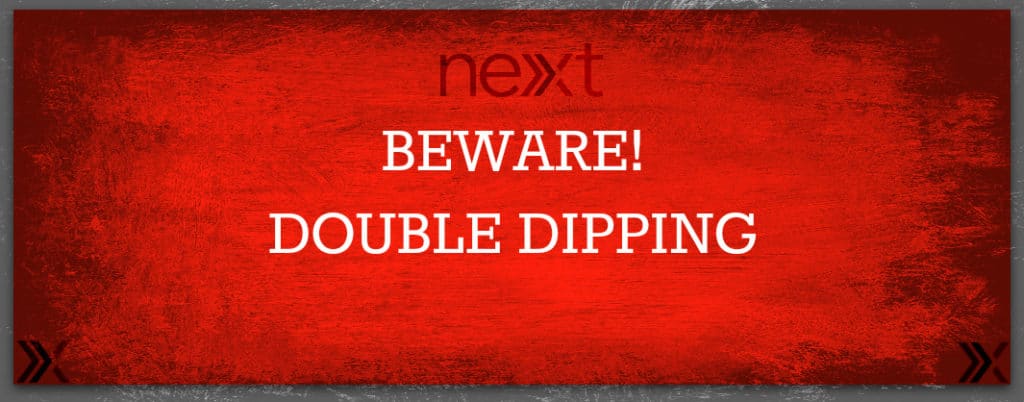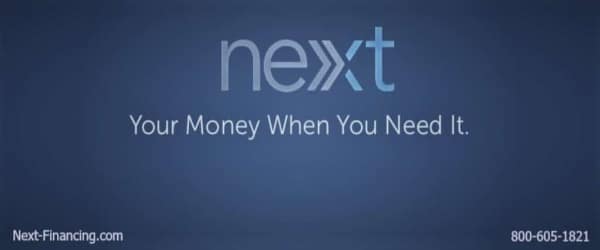What Is Double Dipping?
Double Dipping (also known as “Interest on Interest”, “Fees on Fees”, or “Interest Acceleration”) is a common industry practice that can cost you tens of thousands of dollars over the lifetime of a partnership with the wrong lender or cash advance provider. Double Dipping is most prevalent in short-to-medium term loans and cash advances.
Double Dipping occurs when you refinance or renew your funding with your current funding provider and the proceeds from the new loan or advance (including any unpaid and un-accrued interest or fees) is used to pay off the balance from the previous contract, but with one important twist: your small business pays double for the exact same money. Double Dipping is a complex concept, but it is critically important for small business owners to understand and appreciate how it impacts your total cost of capital when you renew. And we strongly believe that you should know whether your funding provider Double Dips BEFORE you take your first loan or cash advance.
Unless you are an expert in finance, you may not even notice that you are being Double Dipped. To help walk you through how this happens, we’ve created the Be Smart Double Dipping Calculator to help you measure the cost of a Double Dip on each contract offer you receive, as well as a hypothetical example that is detailed below. We elected to use a loan to display the financial impact of Double Dipping because it is easier to understand given that the contract has a fixed term and utilizes common vernacular (e.g. Interest). However, Double Dipping exists in nearly every cash advance, and given that these contracts usually feature shorter effective durations and higher costs, the resulting impact from Double Dipping can be even more severe in a cash advance than a typical business loan.
Business Loan Double Dipping Example
| Original Loan Amount | $100,000 |
| Original Payback Amount | $130,000 |
| Factor Rate | 1.30x |
| Loan Term Length | 12 months |
| Payment Frequency | Weekly |
In this example, you borrow $100,000 and agree to pay back $130,000 via weekly payments of $2,500 over twelve (12) months. Since most lenders require that you pay down at least 50% of your loan before you can renew (or refinance), let’s assume that you have paid down 51% of the loan amount and the corresponding interest at the time you are considering a renewal. Consequently, a summary of the original loan as it currently stands is as follows:
| Original | Paid to Date | Outstanding | |
| Principal | $100,000 | $51,000 | $49,000 |
| Interest | $30,000 | $15,300 | $14,700 |
| Total | $130,000 | $66,300 | $63,700 |
Note that we have further segmented the balances by principal and interest in the table above. Keep note of the $14,700 from the table above, which represents the interest associated with the principal that remains outstanding – absent a renewal or refinance, this interest is not accrued and not yet owed at this point in time. For the sake of simplicity, we will assume no origination fees and that you renew the entire $51,000. Below is a summary of your revised Loan Amount and Total Repayment Amount both with Next-Financing and with a competitor that Double Dips.
| Double Dipper | Next-Financing | Difference | |
| Renewal Amount | $51,000 | $51,000 | no difference |
| Unpaid Principal from Original Loan | $49,000 | $49,000 | no difference |
| Interest from Remaining Principal Outstanding at Time of Renewal | $14,700 | – | $14,700 |
| Total Loan Amount Following Renewal | $114,700 | $100,000 | $14,700 |
| Total Repayment Amount Following Renewal | $149,110 | $130,000 | $19,110 |
In this example, the additional $14,700 is the amount you would be Double Dipped since you will be paying twice for the same capital:
- As part of the interest you pay going forward since it corresponds to the $49,000 in remaining principal; and
- The Double Dipper has added it again to your loan amount following renewal. Furthermore, the incremental $14,700 subject to interest at the same 1.30x factor rate, making the total cost of the Double Dip $19,110. Conversely, Next-Financing waives all outstanding interest in every loan renewal with us.
Important note: the dollar cost of the Double Dip is the same regardless of length of the contract; in other words, we assumed a 12 month loan, but the dollar cost of Double Dipping would be the same for a three (3) month, six (6) month, or any other term for a fixed repayment contract.
Most contracts won’t include the level of detail that is provided above; disclosures that would help make it easier to recognize if you will be Double Dipped in a renewal or refinance. Therefore, it is important for you to be aware of the this practice and consider it in your funding decision, even before you take your first loan or cash advance.
What Can I Do to Protect My Small Business From Double Dipping?
Very few lenders or cash advance companies explain in clear detail how renewals work in their contracts; frequently, it is not mentioned at all. We strongly recommend that you ask your prospective funding provider what happens if you need more capital before you take your FIRST loan or advance, and ask them directly if they Double Dip.
The most important line of defense for small business borrowers is education. Before you agree to any financing, understand exactly what you are signing up for. If you are renewing an existing loan or advance, start with the following questions:
- Ask your finance provider to breakdown the proceeds you will receive upon closing the transaction as well as detail on your payback amount. Ask them to provide this in as much detail as possible;
- Confirm that the unpaid interest (“unpaid fees”, “factor income”, “contract amount” or “margin income”) from the original loan or advance is extinguished and NEITHER added to the new outstanding balance NOR deducted from the proceeds at renewal. If they strictly focus on “contract value”, you are likely getting Double Dipped; and
- Finally, directly ask your lender if they are waiving all outstanding interest or fees; make sure only outstanding principal is deducted from the loan proceeds that are sent to you.
If the answers you receive are not sufficient, contact Next-Financing. While we’d always love to add new clients, we also are happy to simply provide free education or to evaluate your merchant cash advance offer with no obligation.


